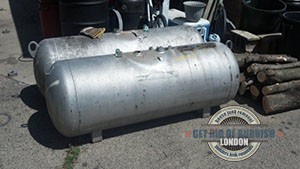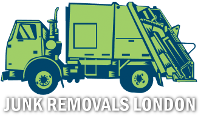Hazardous domestic waste can be found in almost every home. Hazardous domestic waste is basically any discarded, leftover or unused portion of a product which contains toxic chemicals. As such, hazardous domestic waste cannot be and shouldn’t be disposed of conventionally but through specialised means. If your home has accumulated a lot of hazardous waste you can either, contact your local waste management authorities, and check if they can remove and dispose of it in the appropriate way, or you can consult with a specialised rubbish removal company which deals specifically with hazardous domestic waste. Not all rubbish removal service providers are licensed to deal with such waste so look for a company that deals with the specific type of hazardous rubbish you need to dispose of.
How to identify hazardous waste at home? Basically, any product or item which has the words WARNING, CAUTION, POISON, POISONOUS, TOXIC, FLAMMABLE, CORROSIVE, STRONG BASE, REACTIVE, EXPLOSIVE etc. on it or on its label is considered hazardous waste. Such waste is not only dangerous to your personal health and wellbeing, but also affects the environment as it contaminates and pollutes. If hazardous waste is disposed of using conventional or erroneous methods chances are that will cause extensive water and soil contamination, air pollution etc.
 Common examples of hazardous waste found in almost every home are: antifreeze, batteries, brake fluid, chemical strippers, chlorine bleach, contact cement, drain cleaners, fire extinguishers, flea collars and sprays, herbicides, insecticides and insect repellent, kerosene, lawn chemicals, lighter fluid, lye, mothballs, nail polish remover, old propane tanks, paints, pesticides, pool chemicals, prescription drugs, solvents, spot removers, stains and finishes, toilet cleaners, used motor oil, oven cleaners.
Common examples of hazardous waste found in almost every home are: antifreeze, batteries, brake fluid, chemical strippers, chlorine bleach, contact cement, drain cleaners, fire extinguishers, flea collars and sprays, herbicides, insecticides and insect repellent, kerosene, lawn chemicals, lighter fluid, lye, mothballs, nail polish remover, old propane tanks, paints, pesticides, pool chemicals, prescription drugs, solvents, spot removers, stains and finishes, toilet cleaners, used motor oil, oven cleaners.
These are just some examples of hazardous waste found at home. Keep in mind that appliances and household electronics are also considered hazardous waste because they contain many chemicals and substances which may be harmful to people and the environment. Disposal of appliances and electronics is also done through the appropriate channels.
All of these products and items require specialised means of disposal. The same applies to their boxes, bottles, containers etc. as residue and leftovers can also be a health hazard and cause of environmental pollution. A good way to reduce exposure to such toxic substances at home is to reduce their usage altogether, or opt for less toxic or aggressive alternatives of these. In some instances, local authorities might offer incentives like tax rebates or something similar to households which minimise or eradicate the use of products and items which create hazardous domestic waste. If you will be disposing of such waste through local authorities, keep in mind that there may be a waiting period as such rubbish collections aren’t done on a weekly or fortnightly basis which is the case with general household rubbish. In some cases, council provided removal and disposal of hazardous waste may not be a free service and fees may apply. Consider privately organised removal of hazardous waste through a specialised company if they offer you better terms and lower fees.
